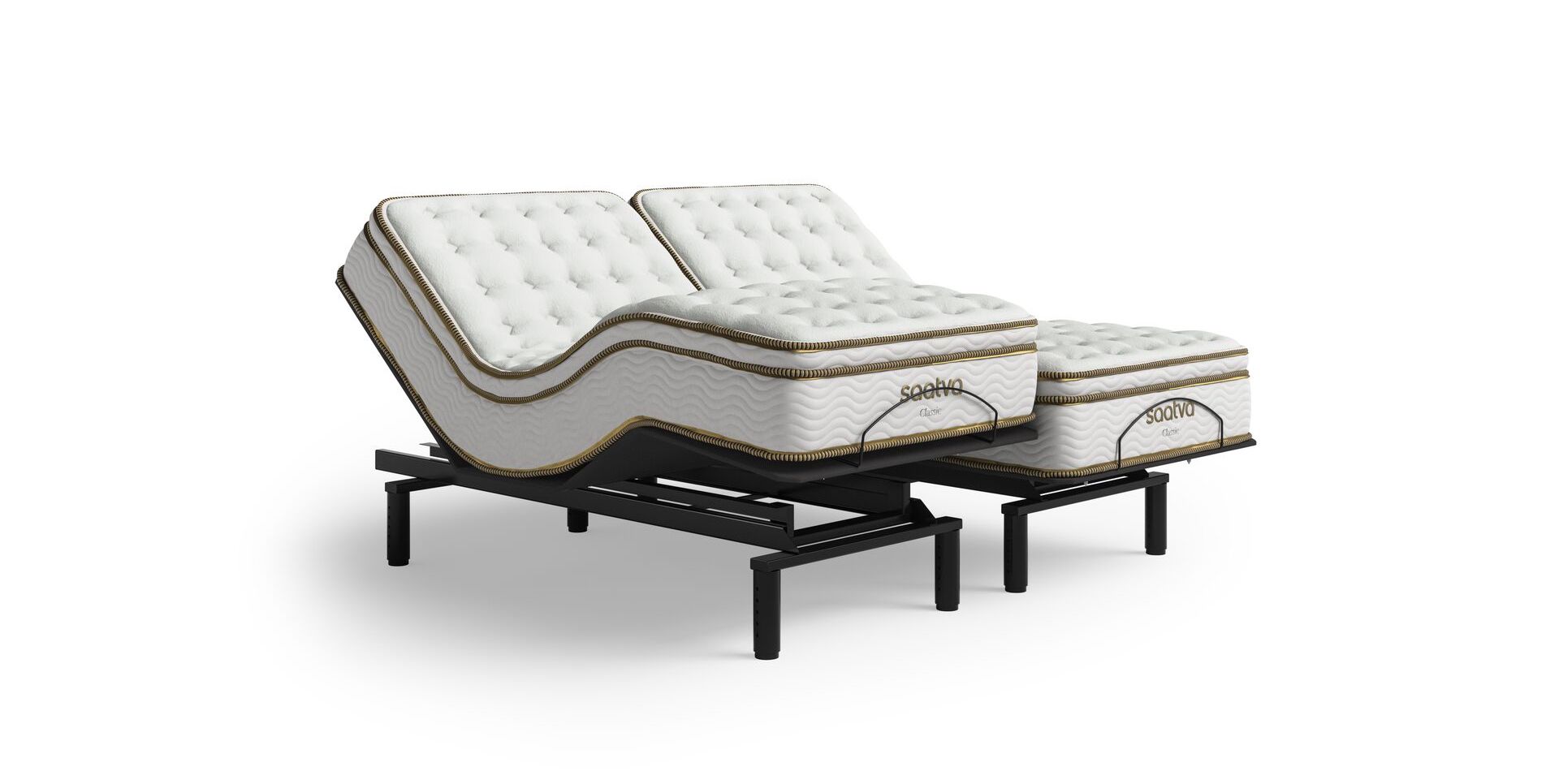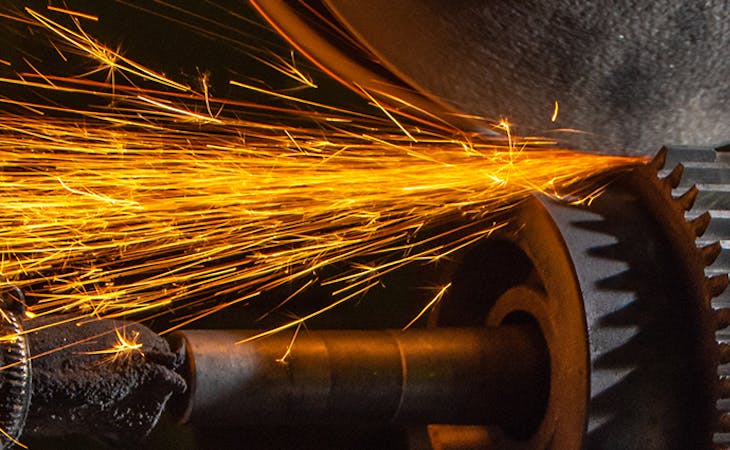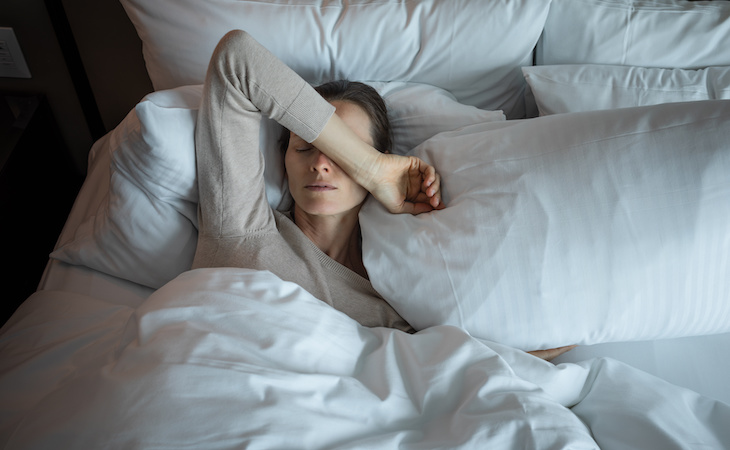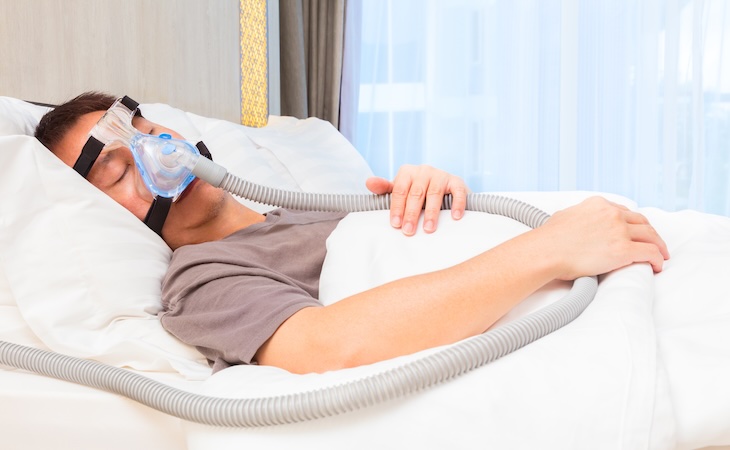Back when I was growing up, my sister always complained that she could hear me grinding my teeth while I slept.
It wasn’t until I was in college that I took any action, getting fitted for a mouthguard by my dentist. He pointed out that a lot of my molars were worn down due to my nighttime habit.
What is bruxism?
Teeth grinding, also known as bruxism, is actually pretty common, affecting up to 16% of the adult population. [1] “Bruxism is a nonfunctional grinding of one’s teeth that does not involve chewing,” explains Bobbi Stanley, DDS, a dentist based in Cary, N.C. “While it can occur during the day, it is during sleep that teeth grinding does the most damage.”
When you grind your teeth during sleep, you can easily exert up to 250 pounds of pressure. “To put this in perspective, it takes approximately 30 pounds of pressure to bite through a raw carrot,” says Stanley.
Damage caused by bruxism goes beyond the kind of wear and tear that my molars displayed. It can also lead to chipped teeth, pain and sensitivity, and even a sore jaw or headache the next day. “When enough of the tooth is worn away, procedures such as root canals, gum surgery, and crowns may be necessary,” Stanley says.
So what can you do to keep your teeth in tip-top shape while you sleep—and prevent waking up in pain? Here, learn about the most common causes of bruxism and get Stanley’s tips for how to stop grinding your teeth at night.
Causes of bruxism
Experts aren’t always sure why people grind their teeth, but these are some of the most common causes.
Stress and anxiety
The Bruxism Association notes that close to 70% of teeth grinding is the result of stress or anxiety. [2] A study published in the journal Head & Face Medicine found that shift workers who were stressed on the job were more likely to grind their teeth at night. [3]
Antidepressants
Certain antidepressants, known as selective serotonin reuptake inhibitors (SSRIs), can cause bruxism, says Stanley.
A study published in the Journal of the American Dental Association notes that these meds suppress dopamine, the brain chemical that controls motor activity, leading to excessive jaw movement and clenching in some people. [4]
Sleep apnea
If you have sleep apnea, you’re more likely to grind your teeth at night, says Stanley. Sleep apnea happens when the muscles in your throat relax, blocking your airway and causing you to stop breathing momentarily. [5]
According to a study in the Journal of Clinical Medicine, sleep apnea is often accompanied by snoring, gasping, mumbling, and teeth grinding. [6]
Acid reflux
The American Sleep Apnea Association points out that acid reflux may trigger bruxism. [7] When you have acid reflux, stomach acid creeps up into your esophagus, burning the tissues of your upper airway.
Your brain may signal your jaw to tense up in response, leading to grinding. (Here’s how to keep acid reflux from ruining your sleep.)
Alcohol, caffeine, and tobacco
Alcohol and tobacco mess with your dopamine levels, while caffeine stimulates muscle activity. [8, 9]
How to stop grinding your teeth at night
“Bruxism doesn’t go away on its own,” says Stanley. Addressing the root cause is key to managing the condition. Here are a few ways to do that.
Relieve stress
For example, if you’re experiencing stress or anxiety, therapy and relaxation techniques like meditation can ease your teeth-grinding habit.
Change medications
“If the cause is medication, sometimes it’s possible for your physician to switch you to a different one,” Stanley says.
Make lifestyle changes
For sleep apnea or acid reflux, raising your head in bed, which you can do with an

Our deluxe adjustable base with even more customized comfort options
, can help mitigate symptoms. [10]
More severe cases of sleep apnea may require wearing a CPAP mask. [11] You may also benefit from lifestyle changes, like cutting back on booze, coffee, and cigarettes. [12]
Invest in a night guard
A trip to the dentist is also in order. The dentist can make sure you don’t do any more damage to your teeth by fitting you with a night guard, a custom-fitted plastic mouthpiece that goes over your top or bottom teeth. [13]
I’ve been wearing a night guard for 10 years now, and while it’s not my favorite accessory, my teeth—and anyone who sleeps within earshot of me—are certainly happier.
However, it’s important to note that some studies say night guards may not actually improve bruxism. [14]
FAQs
How do I stop grinding my teeth in my sleep?
To stop grinding your teeth in your sleep, you have to address the root cause, such as stress sleep apnea, or acid reflux. Wearing a custom night guard from a dentist can help protect teeth from further damage.
How do you protect your teeth from grinding at night?
To protect your teeth from grinding at night, ask your dentist for a custom-fitted night guard. This plastic mouthpiece fits over your teeth to cushion and prevent wear. Additionally, managing stress, reducing caffeine and alcohol, and addressing issues like sleep apnea or acid reflux can help minimize grinding.
References
- Shetty, S., Pitti, V., Satish Babu, C. L., Surendra Kumar, G. P., & Deepthi, B. C. (2011). Bruxism: A Literature Review. Journal of Indian Prosthodontic Society, 10(3), 141. https://doi.org/10.1007/s13191-011-0041-5
- The Bruxism Association. Causes Of Bruxism. https://www.bruxism.org.uk/causes-of-bruxism.php
- Ahlberg, K., Jahkola, A., Savolainen, A., Könönen, M., Partinen, M., Hublin, C., Sinisalo, J., Lindholm, H., Sarna, S., & Ahlberg, J. (2008). Associations of reported bruxism with insomnia and insufficient sleep symptoms among media personnel with or without irregular shift work. Head & Face Medicine, 4, 4. https://doi.org/10.1186/1746-160X-4-4
- (2000). STUDY SHOWS LINK BETWEEN ANTIDEPRESSANTS, BRUXISM. The Journal of the American Dental Association, 131(3), 297. https://doi.org/10.14219/jada.archive.2000.0165
- National Heart, Lung, and Blood Institute. What Is Sleep Apnea? https://www.nhlbi.nih.gov/health/sleep-apnea
- Martynowicz, H., Gac, P., Brzecka, A., Poreba, R., Wojakowska, A., Mazur, G., Smardz, J., & Wieckiewicz, M. (2019). The Relationship between Sleep Bruxism and Obstructive Sleep Apnea Based on Polysomnographic Findings. Journal of Clinical Medicine, 8(10), 1653. https://doi.org/10.3390/jcm8101653
- American Sleep Apnea Association. Teeth Grinding & Sleep Apnea. https://www.sleepapnea.org/sleep-health/teeth-grinding-and-sleep-apnea/
- George, S., Joy, R., & Roy, A. (2021). Drug-Induced Bruxism: A Comprehensive Literature Review. Journal of Advanced Oral Research. https://doi.org/10.1177/2320206821992534
- Rintakoski, K., Ahlberg, J., Hublin, C., Lobbezoo, F., Rose, R. J., Murtomaa, H., & Kaprio, J. (2010). Tobacco use and reported bruxism in young adults: A nationwide Finnish Twin Cohort Study. Nicotine & Tobacco Research, 12(6), 679. https://doi.org/10.1093/ntr/ntq066
- Rintakoski, K., Ahlberg, J., Hublin, C., Lobbezoo, F., Rose, R. J., Murtomaa, H., & Kaprio, J. (2010). Tobacco use and reported bruxism in young adults: A nationwide Finnish Twin Cohort Study. Nicotine & Tobacco Research, 12(6), 679. https://doi.org/10.1093/ntr/ntq066
- National Heart, Lung, and Blood Institute. CPAP. https://www.nhlbi.nih.gov/health/cpap
- National Heart, Lung, and Blood Institute. Sleep Apnea Treatment. https://www.nhlbi.nih.gov/health/sleep-apnea/treatment
- American Academy of Oral Medicine. Tooth Clenching or Grinding. https://www.aaom.com/index.php?option=com_content&view=article&id=129:tooth-clenching-or-grinding&catid=22:patient-condition-information&Itemid=120
- Riley, P., Glenny, A., Worthington, H., Jacobsen, E., Robertson, C., Durham, J., Davies, S., Petersen, H., & Boyers, D. (2020). Oral splints for patients with temporomandibular disorders or bruxism: a systematic review and economic evaluation. Health Technology Assessment, 24(7):1-224. https://pubmed.ncbi.nlm.nih.gov/32065109/




